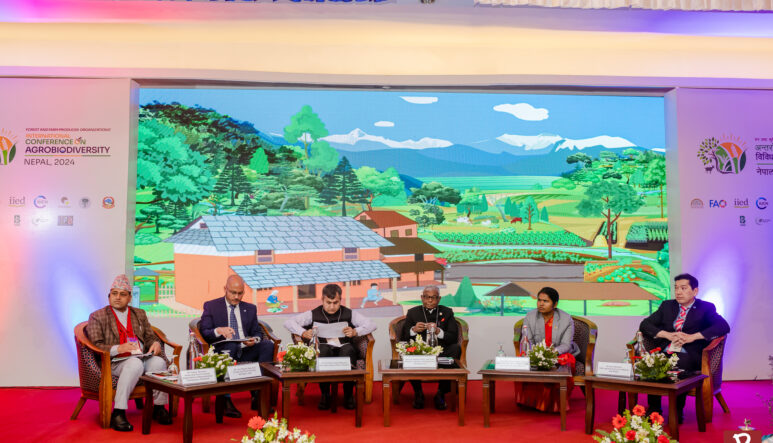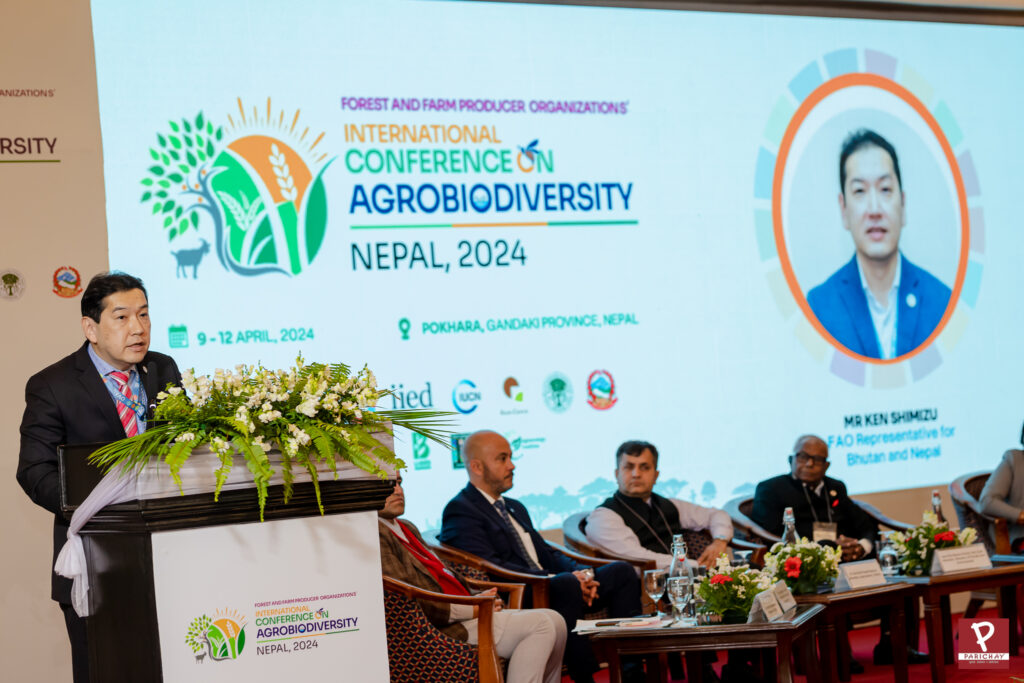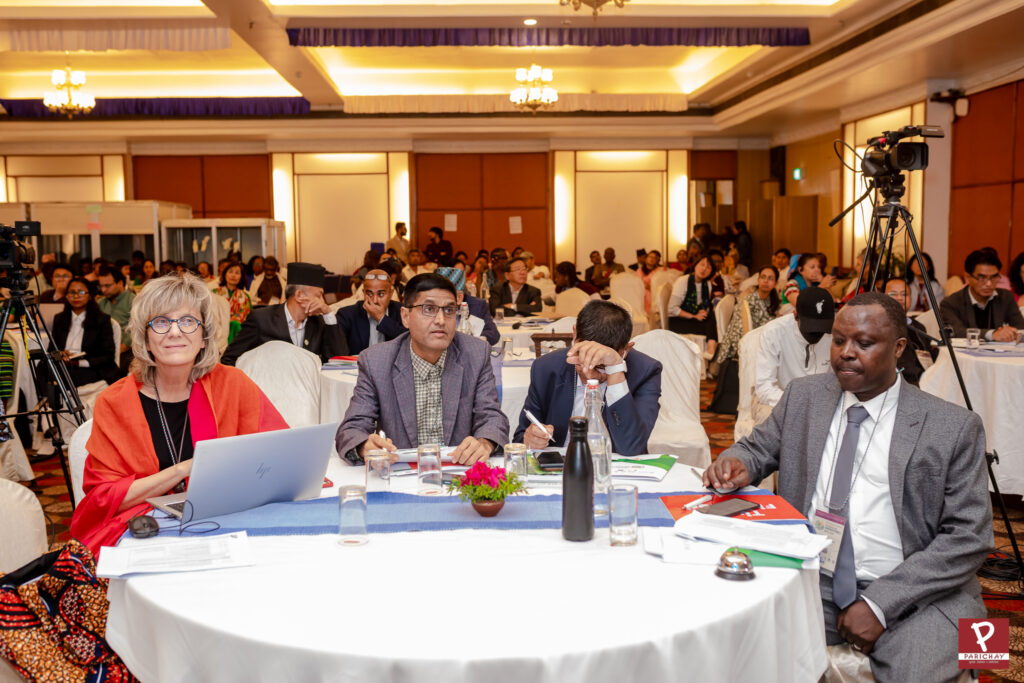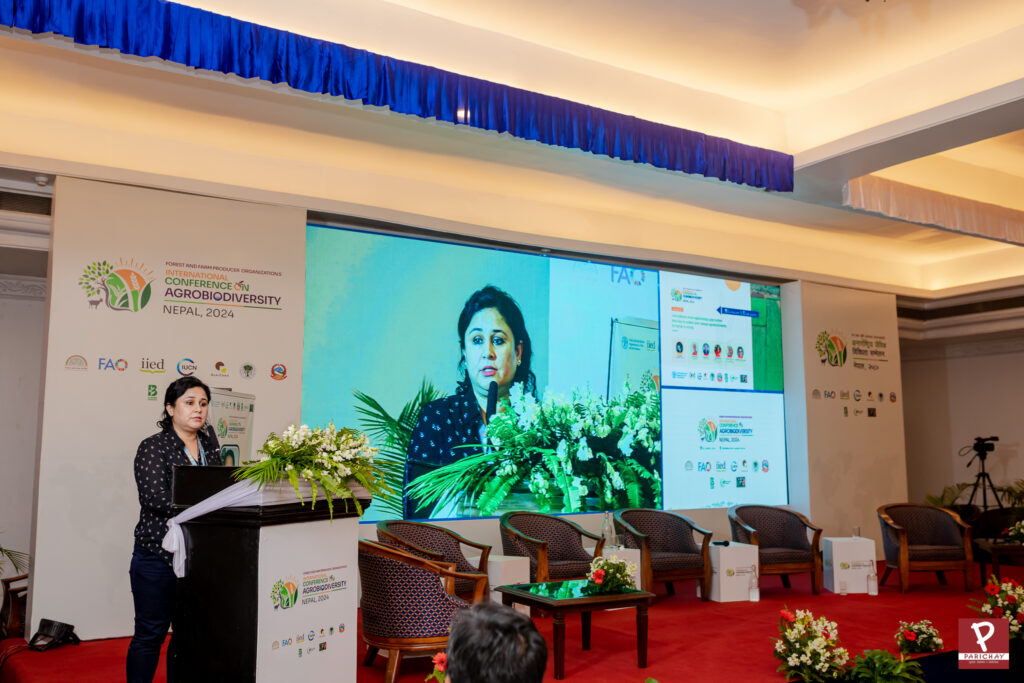Nepal Hosts Global Gathering to Safeguard Agrobiodiversity: Leaders Unite for Sustainable Agricultural Practices

Pokhara, Nepal –
Leaders from across the globe have converged in Pokhara, Gandaki Province of Nepal for the International Conference on Agrobiodiversity 2024, running from April 9th to 12th, 2024. This significant event aims to foster the exchange of innovative traditional and scientific knowledge to advance agroecological practices, promote agro-biodiverse planting materials, and develop climate-smart business and finance models that enhance both nature and nutrition.
The conference is a collaborative effort between several key organizations including the Food and Agriculture Organization of the United Nations (FAO), the Ministry of Forests and Environment (MoFE), the Ministry of Agriculture and Livestock Development, Federation of Community Forest Users Nepal (FECOFUN), Local Initiatives for Biodiversity, Research and Development (LI-BIRD), Agroecology Coalition, and the International Indigenous Forum on Biodiversity, with support from the Forest and Farm Facility (FFF).

More than 150 representatives from government entities, experts, academia, NGOs, INGOs, and the private sector, representing over 30 countries including Belgium, Bolivia, Brazil, Cameroon, Canada, Ecuador, Fiji, France, Gambia, Ghana, India, Italy, Kenya, Liberia, Madagascar, Mali, Mexico, Netherlands, Panama, Peru, Philippines, Rwanda, Spain, Switzerland, Tanzania, Togo, UK, Vietnam, Zambia, and Zimbabwe, are participating in the conference.
In the inaugural session, Honourable Nawal Kishor Sah Sudi, Minister for Forests and Environment, emphasized Nepal’s proactive stance towards addressing pressing biodiversity issues, particularly those concerning conservation and habitat preservation. He highlighted Nepal’s dedicated efforts in combating these challenges and showcased the country’s commitment to environmental agendas.

Honourable Jwala Kumari Sah, Minister for Agriculture and Livestock Development, underscored the strong collaboration between FAO Nepal, the government, and other stakeholders in advancing Nepal’s efforts to promote agrobiodiversity. She elaborated on the policies and programs undertaken by the ministry to prioritize agricultural sustainability.
Nepal’s rich agrobiodiversity, deeply intertwined with the nation’s cultural heritage and food security, has led to the preservation of native crops, promotion of sustainable farming practices, and empowerment of local communities to preserve and transmit traditional agricultural knowledge across generations.

Dr. Govinda Prasad Sharma, Secretary from the Ministry of Agriculture and Livestock Development, highlighted Nepal’s abundant agrobiodiversity heritage and practices in preserving it. He emphasized Nepal’s commitment to promoting traditional farming methods and supporting seed banks and conservation initiatives.
Mr. Ken Shimizu, FAO Representative for Bhutan and Nepal, emphasized the conference’s contribution to FAO’s Programme Priority Areas, focusing on biodiversity conservation, inclusive rural transformation, resilient agri-food systems, and scaling up investment in climate change mitigation and adaptation. He stressed the significance of indigenous and traditional farming systems in preserving agrobiodiversity and genetic resources crucial for resilience against climate change.

Luis Miguel Aparicio, Manager of Forest Farm Facility (FFF), highlighted FFF’s intervention in conserving agrobiodiversity and collaboration with FAO partners to empower smallholder farmers, indigenous groups, and local communities in sustainable forest and farm management to enhance agrobiodiversity both locally and globally.
The conference includes sessions focusing on various aspects of agrobiodiversity management such as agroecology approaches, traditional knowledge exchange practices, seed and farm management techniques, enterprise innovations, and nature finance. These sessions offer delegates the chance to witness innovative agrobiodiversity management practices at different levels and share cases of good practices from Forest and Farm Producer Organizations (FFPOs) to enhance resilience, biodiversity conservation, and community livelihoods.

With over 200 participants in attendance, this conference serves as a strong platform for knowledge exchange and fostering collaboration among FFPOs, governmental institutions, the private sector, CSOs, and other stakeholders to create synergies in promoting agrobiodiversity linked to forest and farm value chains.

